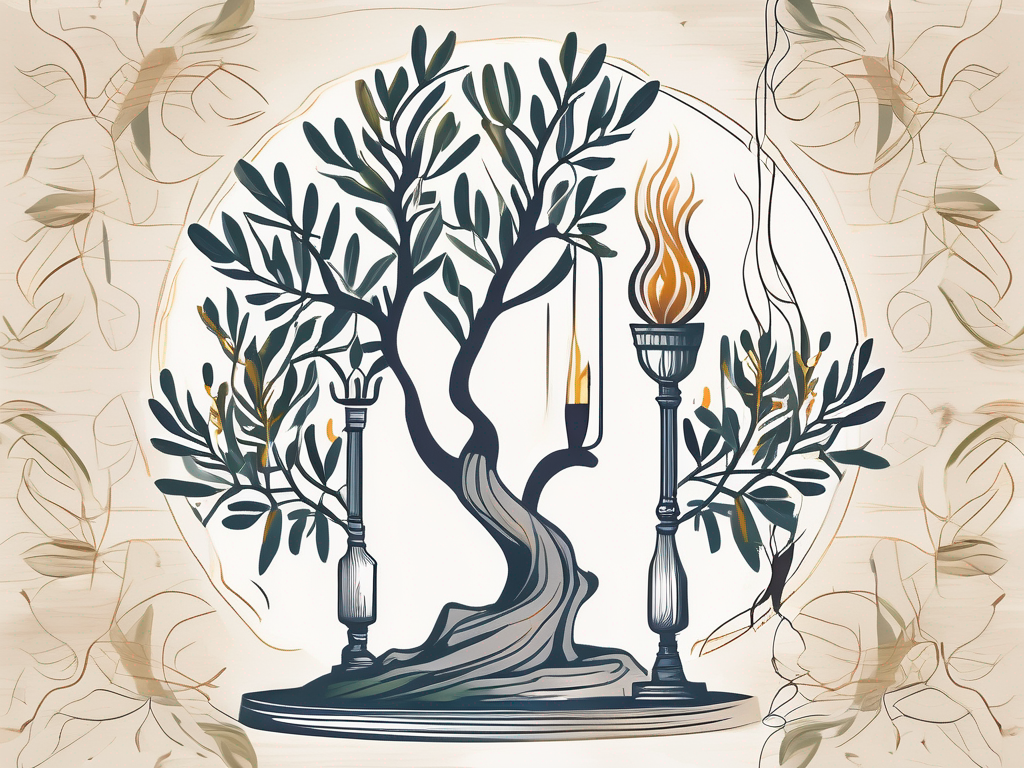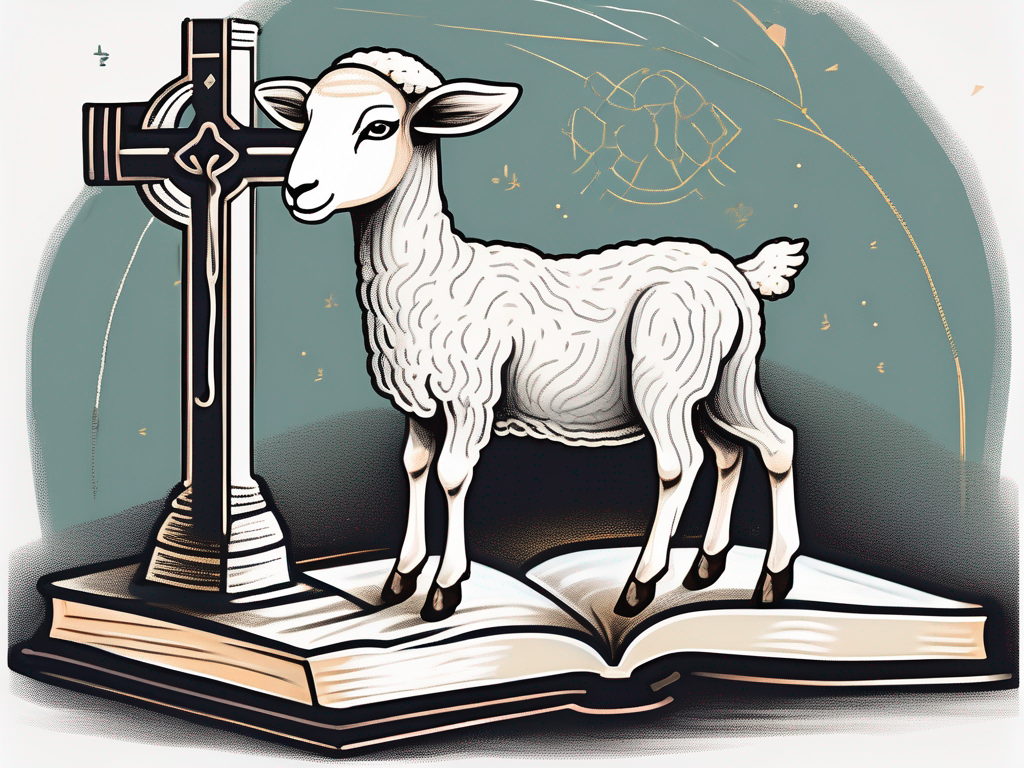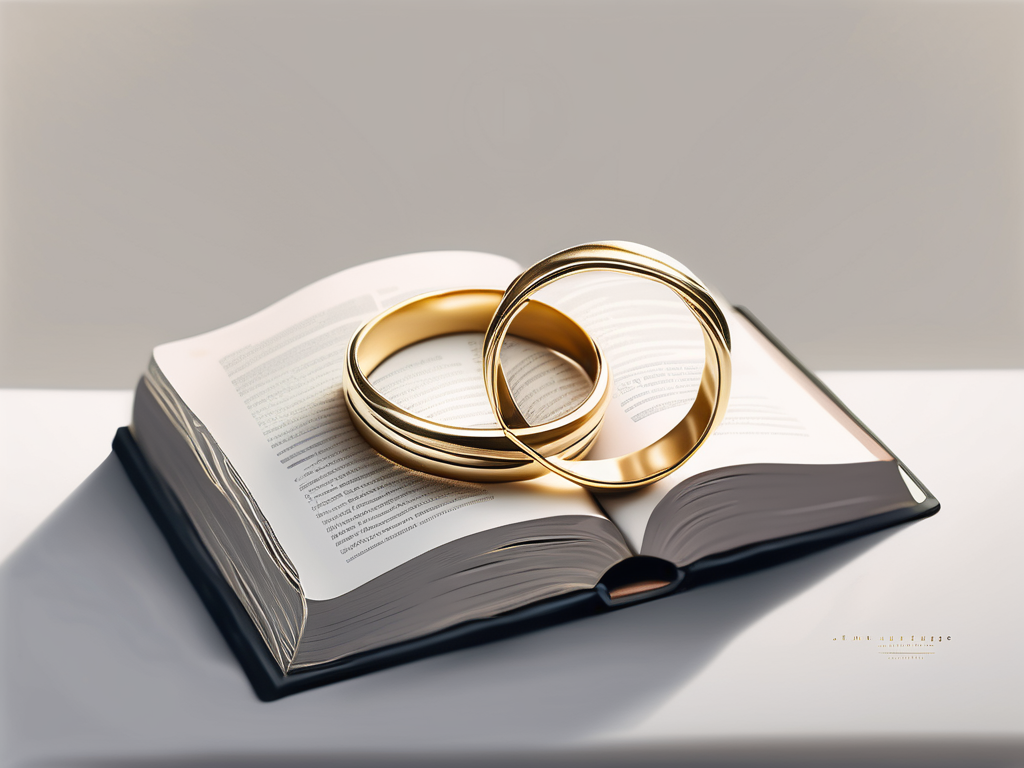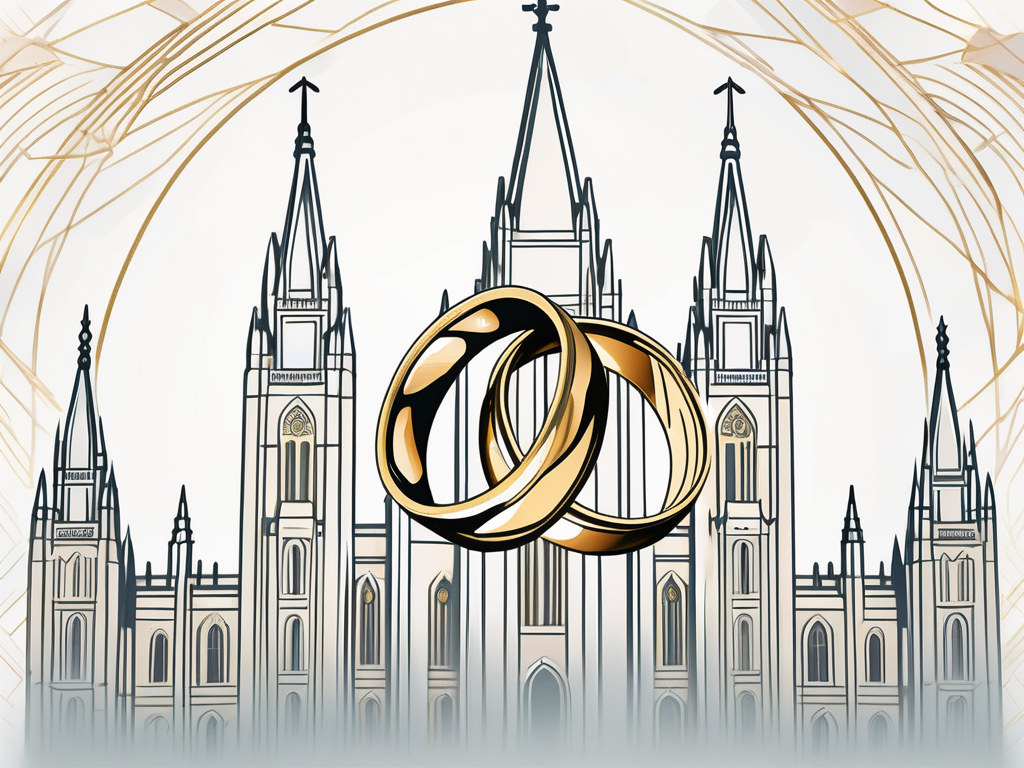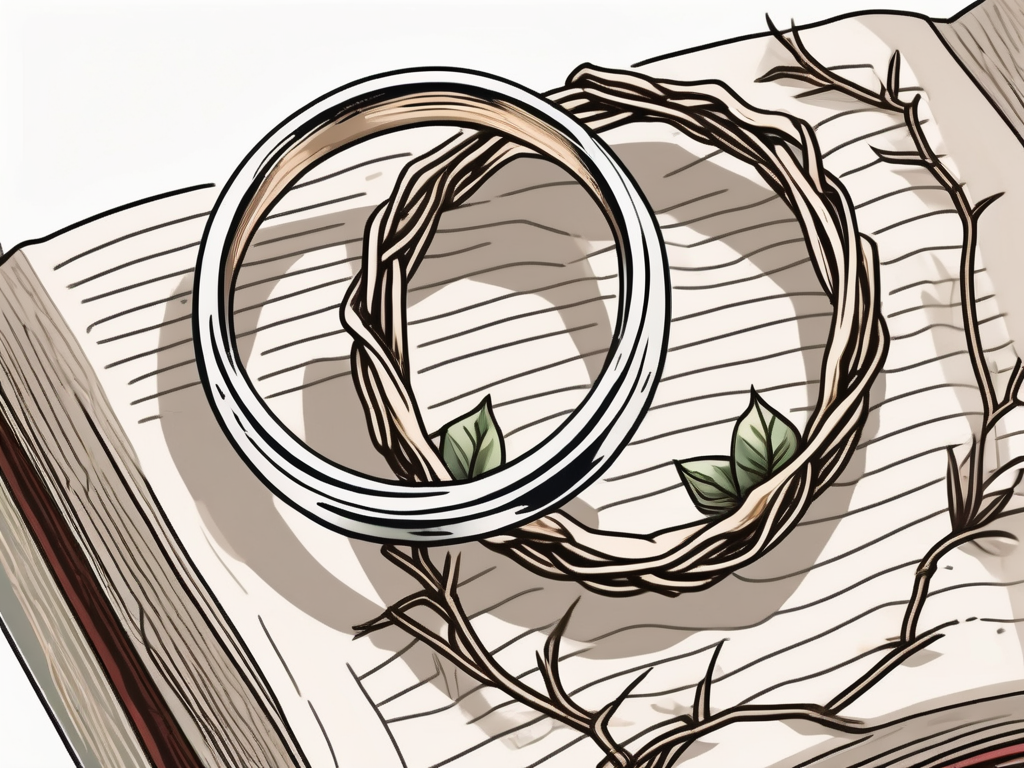Leah holds a significant place in Judaism as one of the key figures in Jewish history. Her story is woven into the fabric of Jewish tradition, providing valuable insights into the lives and experiences of our ancestors.
Understanding Leah’s Role in Jewish History
Leah’s presence in Jewish history extends beyond her mere existence. Her narrative helps us understand the dynamics of family, marriage, and faith within our tradition. Let’s delve into the various aspects of Leah’s life to appreciate her contributions to Judaism.
Leah’s Early Life and Family Background
Leah, the eldest daughter of Laban, was raised in the midst of a complicated family dynamic. She grew up alongside her sister Rachel, who would later become her rival for the affections of Jacob. Despite their differences, their upbringing played a pivotal role in shaping their lives.
Laban, their father, was known for his cunning and trickery. This environment of deceit and manipulation would have a profound impact on Leah’s character, as she learned to navigate the complexities of relationships and the importance of resilience.
Coming from a lineage filled with challenges and uncertainties, Leah’s resilience and strength became defining characteristics that would guide her through difficult times.
Leah’s Marriage to Jacob
Leah’s story takes an unexpected turn when she becomes the wife of Jacob, her sister’s beloved. Through a twist of fate and deception, Leah finds herself in a marriage where she struggles to win Jacob’s love and attention.
Imagine the heartache Leah must have felt, knowing that she was not the desired wife. Yet, despite this initial hurdle, Leah’s unwavering devotion to her husband is evident throughout their journey. Her love for Jacob is not diminished by his preference for Rachel, but rather it grows stronger as she seeks to find her place within their complex relationship.
Leah’s tenacity becomes a testament to the power of love and the complexity of human relationships. Her story reminds us that love is not always straightforward, but it can still be meaningful and transformative.
Leah’s Children and Their Significance
Leah’s role as a mother is a significant part of her legacy. She bore Jacob six sons and one daughter, each with a unique significance within the context of Jewish history. These children would go on to become the founders of the twelve tribes of Israel, shaping the destiny of the Jewish people.
Let’s explore the significance of Leah’s children:
- The firstborn son, Reuben, holds a position of leadership within the tribe. His birth symbolizes the beginning of a new era for the descendants of Jacob.
- Simeon and Levi became known for their strength and determination. Their actions and character would have a lasting impact on the future of the Jewish people.
- Judah played a central role in the lineage of King David and the eventual Messiah. His descendants would become the rulers of Israel, and his name would be forever associated with the Davidic dynasty.
- Issachar, Zebulun, and Gad contributed to the economic stability and military might of the tribes. Their skills and resources would be instrumental in the survival and prosperity of the Jewish nation.
Leah’s daughter, Dinah, reminds us of the often overlooked strength and resilience of women within our tradition. Despite the challenges she faced, Dinah’s story serves as a reminder that women have played a vital role in shaping Jewish history.
As we reflect on Leah’s life, we recognize the complexity of her experiences and the significance of her contributions. Her story teaches us valuable lessons about love, resilience, and the power of family. Leah’s role in Jewish history is not to be underestimated, as she continues to inspire and guide us in our own journeys.
Leah’s Character Traits and Their Interpretations
Leah’s character traits have been subject to various interpretations throughout history, each offering unique insights into her personality and role in Jewish life.
Leah, the first wife of Jacob, possesses a multitude of admirable qualities that have captivated scholars and readers alike. Her story, filled with triumphs and tribulations, serves as a testament to her strength, resilience, faith, and devotion.
Leah’s Strength and Resilience
Leah’s strength is often highlighted as she navigates the challenges of her marriage and her position within her family. Despite the initial hardships she faced, including being married to Jacob against her will, Leah’s unwavering determination allows her to rise above her circumstances.
Throughout her life, Leah demonstrates an incredible resilience that enables her to overcome the obstacles thrown her way. From enduring the pain of feeling unloved by her husband to coping with the constant comparison to her sister Rachel, Leah’s ability to withstand adversity is seen as a source of inspiration for those facing difficulties in their own lives.
Her strength is not only physical but also emotional and spiritual. Leah’s unwavering resolve to make the best of her situation and find joy in her blessings showcases her inner fortitude. She becomes a symbol of hope for individuals who find themselves in challenging circumstances, reminding them that they too can find strength within themselves.
Leah’s Faith and Devotion
Leah’s unwavering faith in God is evident throughout her story. Despite the hardships she endures, she never loses sight of her belief in a higher power and attributes her blessings and children to the divine.
Her faith serves as a guiding light, providing her with the strength to persevere and find solace in difficult times. Leah’s steadfast devotion to God inspires generations of Jews to maintain a deep connection to their faith, reminding them of the importance of trust and reliance on the divine.
Leah’s story also emphasizes the significance of faith in Jewish life. Her unwavering belief in God’s plan for her and her family serves as a reminder that even in the face of adversity, one can find comfort and purpose through their faith.
Furthermore, Leah’s devotion to her faith extends beyond her personal relationship with God. She actively encourages her children to maintain a strong connection to their heritage and instills in them the values and traditions that have been passed down through generations.
In conclusion, Leah’s character traits of strength, resilience, faith, and devotion have left an indelible mark on Jewish history and continue to inspire individuals to overcome challenges and maintain a deep connection to their faith. Her story serves as a timeless reminder that even in the face of adversity, one can find strength, purpose, and solace through their unwavering belief in a higher power.
Leah’s Legacy in Judaism
Leah’s impact on Jewish life extends beyond her personal journey. Her contributions have shaped various aspects of our tradition, leaving a lasting legacy for generations to come.
Leah, the eldest daughter of Laban, played a pivotal role in the formation of the Jewish people. Despite being initially overshadowed by her younger sister Rachel, Leah’s strength and resilience allowed her to rise above adversity and leave an indelible mark on Jewish history.
Leah’s Influence on Jewish Matriarchal Traditions
Leah’s position as one of the matriarchs of the Jewish people has had a profound impact on the role of women within Jewish society. Her strength and resilience have served as a source of empowerment for Jewish women throughout history, highlighting the importance of female leadership and agency in our tradition.
Leah’s story resonates with women today, reminding them of the power they hold within their own lives and communities. Her ability to navigate complex family dynamics and find her own voice serves as a beacon of inspiration for women striving for autonomy and self-expression.
Leah’s Role in Jewish Liturgy and Rituals
Leah’s story is woven into the fabric of Jewish prayers and rituals. Her journey serves as a reminder of the complexities and challenges faced by our ancestors. Her experiences, celebrated and mourned, find resonance in our prayers, allowing us to connect with her legacy in a profound and spiritual way.
When reciting the Amidah, the central prayer of Jewish liturgy, Leah’s name is often invoked alongside the other matriarchs and patriarchs. This inclusion signifies the importance of her contributions and the recognition of her enduring impact on our faith.
Furthermore, Leah’s story is commemorated during the festival of Sukkot. The tradition of the Four Species, which involves waving a lulav and etrog, symbolizes the unity and diversity within the Jewish people. Just as the Four Species come together to form a harmonious whole, so too does Leah’s story intertwine with the larger narrative of our shared heritage.
Leah’s legacy is not confined to the pages of history; it lives on in the hearts and minds of Jewish individuals around the world. Her story continues to inspire and guide us, reminding us of the strength and resilience that lies within each of us.
Theological Perspectives on Leah
The theological interpretations surrounding Leah’s life offer further insights into her character and her place within the broader Jewish narrative.
Rabbinic Interpretations of Leah’s Life
Rabbis and scholars have explored Leah’s story through various commentaries and midrashim. These interpretations shed light on her motivations, emotions, and aspirations, inviting us to delve deeper into the complexities of her character and the lessons we can learn from her.
Modern Jewish Thought on Leah
Contemporary Jewish thinkers continue to examine Leah’s story, drawing connections between her experiences and the challenges faced by Jews in the modern world. Her journey serves as a source of inspiration, encouraging individuals to find strength and resilience within their own lives.
Leah’s Impact on Jewish Women Today
Leah’s story continues to resonate with Jewish women today, offering a source of guidance and inspiration within their own lives.
Leah as a Role Model for Jewish Women
Leah’s strength, resilience, and unwavering faith make her a relatable role model for Jewish women navigating personal and communal challenges. Her story reminds them of the power they possess to shape their own destinies and contribute to the betterment of the Jewish community.
Leah’s Lessons for Contemporary Jewish Life
Leah’s experiences offer invaluable lessons for individuals seeking to deepen their connection to Judaism and their own spirituality. Her story encourages introspection, resilience, and the pursuit of meaningful relationships and purpose within Jewish life.
In Conclusion
In exploring the life of Leah, we discover a multifaceted figure whose story continues to inspire and guide us. From her early life and marriage to her enduring legacy, Leah’s journey illuminates the complexities of human relationships, the power of faith, and the strength of character needed to navigate life’s challenges. As we reflect on her experiences, we uncover lessons that connect us to our past and provide guidance for our journeys ahead.

